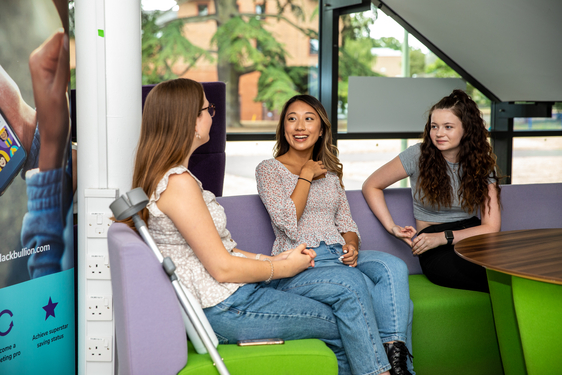There are over 1 billion disabled people in the world (WHO, 2011), making up around 15% of the global population, a community that has grown as a consequence of the pandemic. In the UK in particular, there are 14.6 million disabled people, 22% of whom are working adults (Kirk-Wade, 2022).

Covid-19 has been hard for all. It has also acted as a reminder of the marginalisation of disabled voices in decisions around care and support by the limited access and disruption to essential services that occurred. The impact on wellbeing is reported by the ONS (2021) with disabled people’s (aged 16 to 64 years) average anxiety levels higher than what non-disabled people reported.
The social model of disability, a model disabled activists passionately worked to be acknowledged in legislation and practice, gave way to a more medical approach with the controversial use of ‘Do Not Attempt to Resuscitate’ (DNAR) notices, the UK’s Coronavirus Act (2020) suspension of the Care Act (2014) in England, and less focus on the socio-economic factors that increased the vulnerability of disabled people’s lives. Disability was not highlighted in important analyses published during the pandemic (Shakespeare et al., 2021) partly because it may have been harder to disaggregate the data or it may also suggest a certain acceptance of a degree of inevitability among politicians, the media and the public’ (Foster, 2022).
Christopher Samuels’s (2022) and Aparna Nair’s (2020) work for the Wellcome Collection (2021) draws attention to dominant representations of disability in health research and public health as deficit and tragedy while more affirmative narratives of disabled lives are being ignored. The value of medical research is undeniable but the positioning of impairment or disability as something to be fixed may ignore the multi-dimensional view of the human experience and raises questions about language, attitudes and agency.
The concern is also that when disability is seen as the opposite of ability and as an add-on to a perceived norm, then ableist attitudes may emerge around capability, competence and prioritisation. For instance, in the Connecting the Dots report (Griggs, 2017) dyslexic people identified creativity and problem solving as their key characteristics, while public perceptions of dyslexia still focused mainly on difficulties with reading and writing as key dyslexia attributes.
If disability is offered up as the central framework rather than simply another angle from which to approach the topic of equity, where the expertise-by-experience of disabled people is foregrounded, then more accessible and inclusive practices, spaces and services can be imagined, negotiated and developed for all. As the United Nations Policy Brief (2020, 18) argues “a disability inclusive COVID-19 response and recovery will better serve everyone. It will provide for more inclusive, accessible and agile systems capable of responding to complex situations, reaching the furthest behind first. It will pave the way for a better future for all”.
As we are observing the twelfth year of the UK Disability History Month with the theme of health and wellbeing and we rebuild life post-pandemic, we can consider further the language we use around disability and health. “End the awkward” by Scope is described by the charity as “a light-hearted campaign, but it addresses a serious issue” about attitudes towards disabled people. Disability or impairment may be associated with chronic pain but that does not define the whole human experience; such understanding should help towards empathy rather than questions of competence. We can reflect on the use of neutral language to describe disability profiles; for instance, “wheelchair user” rather than “wheelchair bound” and while context is important, the use of “sufferer of in relation to disability does not portray a positive or emancipatory view of disability.
Finally, it is important to be aware that sometimes diagnoses and disability assessments can take a long time and some disabilities are not visible. Implementing workplace adjustments is crucial but to change the culture of an organisation it is also vital to have meaningful involvement of disabled people in processes and activities. In that way we can have the opportunity to build better and more inclusive, accessible and sustainable local, regional and international communities.
Yota Dimitriadi is a Professor in the Institute of Education at the University of Reading and Chair of the Staff Disability Network.
